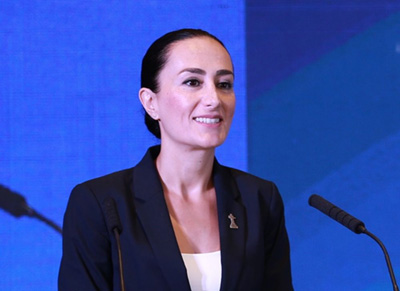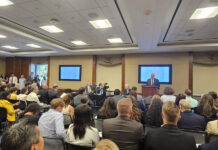By Margarita Ivanova
Special to the Mirror-Spectator
LOS ANGELES — Dr. Irina Ghaplanyan, a former deputy minister of environment for the Republic of Armenia, climate policy professional, and political scientist, spoke about Armenian environmental security at a February 13 Zoom event organized by the ARPA (Analysis Research & Planning for Armenia) Institute.
Ghaplanyan declared that combating pollution and climate change must be a community effort. She gave the example of the gradual repair of the ozone layer. “After a few decades of active engagement from the global community, and commitments from virtually every country in the world, we see that the ozone layer is gradually recovering,” Ghaplanyan said.
Climate change implications not only affect the climate, but every aspect of natural resources. Since the pre-industrial period, Armenia has registered a 1.3 degree Celsius increase, as well as a 9-percent precipitation increase. These extreme climate shifts have had a negative impact on the economy, and especially on the agricultural sector, Ghaplanyan said.
According to a Swiss Institute study forecast, if the world stays on this climate change track, Armenia’s average summer temperatures will surpass 40 degrees Celsius (104 degrees Fahrenheit). “So many layers of the economy will be affected, not just agriculture,” said Ghaplanyan.








